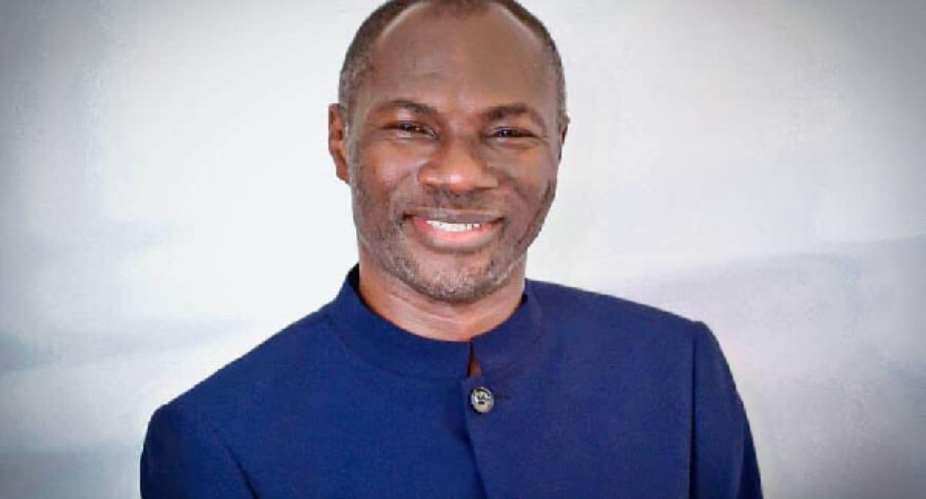Over the past weeks, Prophet Badu Kobi has been the subject of many conversations on several media platforms because of his misogynistic or sexist comments about Asante, Fante and Ewe women. Gender activists, politicians and religious leaders have, in diverse ways, urged the self-proclaimed “Man of God” to apologize to Ghanaian women. Despite the numerous calls on him, the man has not done what Ghanaians (especially women) expect from him—apology. Why he has not done “the expected” has received less public discourse.
In this piece, I sociologically examine Prophet Badu Kobi´s intransigent position. I demonstrate that his uncompromising stance may be due to his feeling of low concern for his victims (Asante, Fante and Ewe women), perceived threat of his self-image and his fear that an apology may not elicit forgiveness.
Apology is a powerful tool employed in conflict management. Research has consistently shown that transgressors use apology in resolving an offense (Fehr, Gelfand, & Nag, 2010). It has also been noted that apology decreases victims´ aggression toward their transgressors, increases victims´ willingness to forgive their offenders and consequently mends and restores broken relationships (Barkat, 2002). Although rendering an apology could be beneficial, some transgressors (like Prophet Badu Kobi) do not resort to it. Why? There could be three reasons.
First, some transgressors do not apologize simply because they have low concern for their victims. Apology is an “other-oriented” behaviour and a transgressor only performs this act if he or she recognises that his or her victim has been offended (Dunlop, Lee, Ashton, Butcher, & Dykstra, 2015). Considering the current posture of the prophet, it appears he has no concern for the women he has offended. As to whether he admits or recognises that he has offended anyone is another issue. I think until he acknowledges that he has offended Asante, Fante and Ewe women, he will forever remain unapologetic.
Second, some transgressors do not apologise when they perceive threats to their self-images. Every rational person who offends the other feels guilty and morally rates himself or herself lower on various human attributes. But several studies have shown that some offenders usually feel reluctant to apologise because it is humiliating and stressful to do so (Leunissen, De Cremer, van Dijke, & Reinders-Folmer, 2014). Undoubtedly, the rebuttals from individuals, women and religious groups suggest that the prophet´s public image is gradually sinking or has sunk. I should also think that he perceives his self- image to be under threat. Arguably, he has not eaten his words because he doesn´t want to be humiliated the more.
Third, some transgressors withhold their apologies if they doubt its ability to elicit forgiveness. What Ghanaian women expect from the prophet is an apology, I guess. However, it seems he is underestimating the positive consequences of an apology or misjudging the likelihood that Ghanaian women in general and the Asante, Fante and Ewe women in particular, will forgive him. Hence, his failure to resort to it.
Being cognizant of these “apology-rendering” barriers, I can conclude that the Man of God is not of himself as a lot is probably going through his mind. I believe he will pay heed to the calls on him to apologize if he is able to overcome these hurdles.
References
Barkat, J. S. (2002). The effect of unilateral conciliatory initiatives on negotiation ripeness in seemingly intractable conflicts. Dissertation Abstracts International B: Sciences and Engineering, 62 (12-B), 6020
Dunlop, P. D., Lee, K., Ashton, M. C., Butcher, S. B. & Dykstra, A. (2015). Please accept my sincere and humble apologies: The HEXACO model of personality and the proclivity to apologize. Personality and Individual Differences, 79, 140–145.
Fehr, R., Gelfand, M. J. & Nag, M. (2010). The road to forgiveness: A meta-analytic synthesis of its situational and dispositional correlates. Psychological Bulletin, 136, 894–914
Leunissen, J. M., De Cremer, D., van Dijke, M. & Reinders-Folmer, C. P. (2014). Forecasting errors in the averseness of an apology. Social Justice Research, 27, 322–339.
Author´s bio: Anthony Mpiani is a Ghanaian based in Canada.





 Bawumia meets Pope Francis
Bawumia meets Pope Francis
 Akufo-Addo spotted ordering chiefs to stand for his handshake
Akufo-Addo spotted ordering chiefs to stand for his handshake
 Akufo-Addo ‘disrespects’ every chief in Ghana except Okyenhene — NDC Communicato...
Akufo-Addo ‘disrespects’ every chief in Ghana except Okyenhene — NDC Communicato...
 Supreme Court clears way for dual citizens to hold key public positions
Supreme Court clears way for dual citizens to hold key public positions
 Be transparent, don’t suppress the truth – Prof. Opoku-Agyemang to Jean Mensa
Be transparent, don’t suppress the truth – Prof. Opoku-Agyemang to Jean Mensa
 ‘I won’t tell the world I was only a driver’s mate during challenges’ – Prof Jan...
‘I won’t tell the world I was only a driver’s mate during challenges’ – Prof Jan...
 We’ll prosecute corrupt officials of Akufo-Addo’s govt – Prof Jane Naana
We’ll prosecute corrupt officials of Akufo-Addo’s govt – Prof Jane Naana
 [Full text] Acceptance speech by Prof Jane Naana Opoku-Agyemang as 2024 NDC Runn...
[Full text] Acceptance speech by Prof Jane Naana Opoku-Agyemang as 2024 NDC Runn...
 Election 2024: Stop fighting over positions in Mahama’s next govt – Asiedu Nketi...
Election 2024: Stop fighting over positions in Mahama’s next govt – Asiedu Nketi...
 Prof Jane Naana Opoku-Agyemang will restore dignity of vice presidency – Fifi Kw...
Prof Jane Naana Opoku-Agyemang will restore dignity of vice presidency – Fifi Kw...
